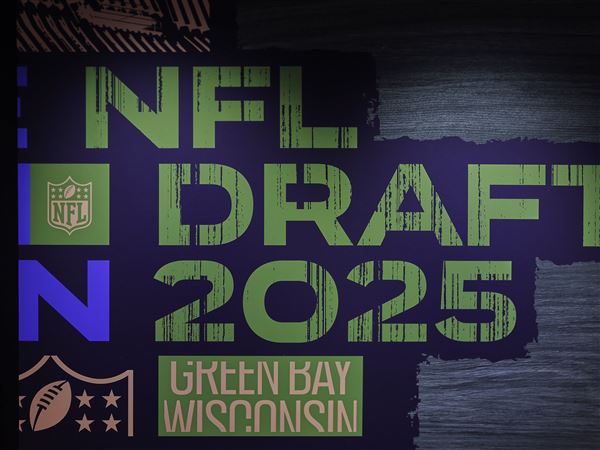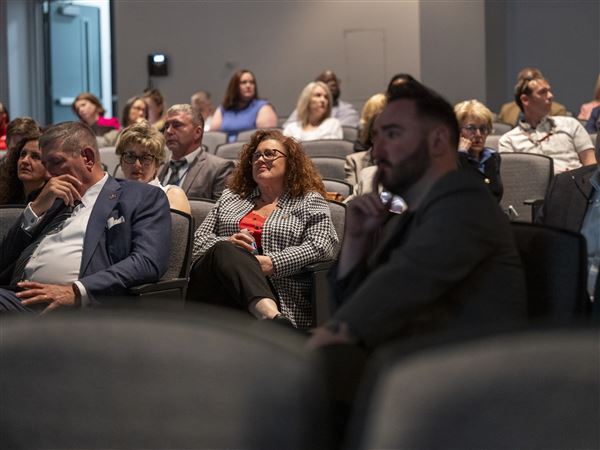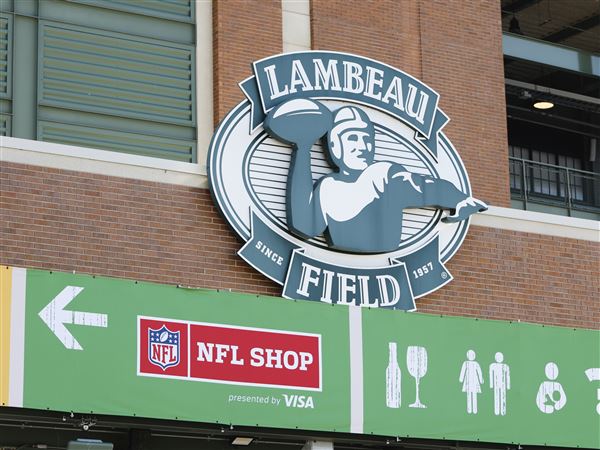A long-delayed plan to add 3,000 seats to the south end zone of Heinz Field is back on track after the Steelers agreed to fund the entire project, ending more than a year of litigation with the stadium owner.
Under a deal announced Monday, the Steelers plan to cover the cost of the $34.5 million seat expansion and the installation of a second scoreboard at a cost of $3.3 million through ticket revenues and the sale of personal seat licenses.
Those revenues will support an annual $2.1 million lease payment to be made by the team to the Pittsburgh-Allegheny County Sports & Exhibition Authority, the Heinz Field owner, to pay off a bond issue the SEA will float to help finance the improvements. Those payments will start next year and last until the Steelers' lease expires in 2031.
No taxpayer money will be used to pay for the new seats or the second scoreboard. The team also has agreed to cover any cost overruns. It will add $1 to an existing ticket surcharge paid by fans starting in 2015 to pay for future capital improvements at the 65,500-seat stadium.
"We are pleased that an agreement with the SEA has been reached that will allow for the expansion of Heinz Field in the South Plaza. With the new general reserved seats, club seats, and new high-definition scoreboard, we believe these additions will play an important part in making sure Heinz Field continues to be a state-of-the-art facility for our fans," Steelers president Art Rooney II said in a statement.
The SEA board will meet today to vote on the agreement.
Although the parties are asking the Allegheny Regional Asset District to guarantee the bonds, the SEA, under the deal, will get the first cut of ticket revenue each year -- even before the team gets its share -- to ensure that the debt service payment is made and that no RAD funds, generated by the sales tax, will come into play.
With RAD guaranteeing the bonds, it allows for better interest rates for the project funding. The RAD board is expected to vote on the request next month.
"No taxpayer dollars will be at risk," county Executive Rich Fitzgerald said. "In legal terms, [RAD] will be the backstop, but the cost will be picked up by the team."
In a statement, Mr. Fitzgerald said that he was "thrilled" that the parties were able to reach a deal without the use of tax dollars and after so many months of litigation.
"I always felt we could work this out just by sitting down and compromising on both sides," he said. "I just felt that between the board members, the city and the county and the team, there was a realization that we could come up with a solution."
As part of the deal, the Steelers will add another $1 to the existing ticket surcharge, now capped at $3, starting next year to finance future capital repairs at the stadium, which opened in 2001.
In addition, the SEA has agreed to use its "best efforts" to persuade the RAD board to allocate $800,000 a year for the creation of a new multifacility fund that would be used to finance capital repairs at Heinz Field, PNC Park, the Consol Energy Center and the David L. Lawrence Convention Center, all SEA-owned facilities. The $800,000 is about the same amount earmarked by RAD to pay off improvements made to the now-demolished Civic Arena. Those payments will end in 2018.
Mr. Fitzgerald said such a fund is needed to help pay for major repairs or "catastrophic emergencies" at any of the four facilities.
"There's really no provision to be able to do that right now. There had to be some planning into the future to provide for that," he said.
Under the agreement with the SEA, if RAD does not authorize allocations for the multifacility fund, the Steelers have the option of dropping the $1 ticket surcharge.
The deal also calls for the Steelers to be reimbursed $2 million of the $5 million they spent to make repairs to the Heinz Field control room.
City Councilman Dan Gilman, an SEA board member, said that while he still has some questions about the agreement, it appears to be one that he can support.
"Overall, from where we started to what we got, it's clearly a win-win for both the Steelers and the taxpayers of Pittsburgh," he said.
In reaching the agreement, the team abandoned a demand that the SEA pay two-thirds of the cost for the expansion based on a section of the Heinz Field lease involving designated expansions of no more than 10,000 seats.
Common Pleas Judge Joseph James ruled last year that the team failed to show that the proposed additions met the lease's definition of a capital improvement, which he said was needed to trigger the SEA funding.
The Steelers had filed a lawsuit in late 2012 over the expansion after a deal to pay for the improvements by adding $1 to an existing ticket surcharge and creating a new $3 to $4 parking surcharge collapsed. That lawsuit will be dismissed once bonds are issued for the expansion.
If the new agreement is approved by the SEA board, the team plans to start the construction of the seats after next season and have them in place in time for the start of games in 2015. They currently are in the process of adding the second scoreboard to the stadium's northwest corner. It will be ready for the start of this season.
The Steelers plan to market the new seats to fans on their season ticket waiting list.
First Published: May 19, 2014, 8:04 p.m.
Updated: May 20, 2014, 3:31 a.m.















